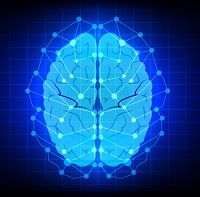Is Leaky Thalamus to Blame for ADHD?
A possible connection between Attention Deficit/Hyperactivity Disorder (ADHD) and a genetic malfunction in the thalamus may explain the distractibility and physical restlessness that plague children and adults with ADHD,

A possible connection between Attention Deficit/Hyperactivity Disorder (ADHD) and a genetic malfunction in the thalamus may explain the distractibility and physical restlessness that plague children and adults with ADHD, a group of New York University, MIT and Duke University scientists have reported.
The genetic defect they’ve detected may be particularly relevant to the approximately 30 percent of the ADHD cases that are not responsive to treatment with stimulants, their study said. Stimulants are the medications most commonly prescribed to treat ADHD, a disorder that affects as many as 11 percent of the nation’s children and adolescents, according to recent Centers for Disease Control and Prevention statistics.
This new understanding of the mechanisms in the thalamus that generate attention, sensory motor processing, and sleep rhythms may help pave the way for new drug interventions for ADHD, the study added.
The co-authors also suggested that their findings could eventually lead to a new disease category that includes the autism spectrum and intellectual disability as well as ADHD. “To our knowledge, this is the first study to detail the biology behind thalamic dysfunction in cognitive disorders…,” said senior investigator Michael M. Halassa MD, PhD, an assistant professor of neuroscience at NY Langone. “We believe that this work defines a new disease category based on common biological signatures….”
In their research on what they called a “leaky thalamus,” the scientists looked at what happens when a specific gene, Ptchd1, is deleted to genetically alter mice. The scientists found that Ptchd1 plays a role in modulating the amount of SK (small conductance calcium-dependent potassium currents) that help the thalamus communicate with other parts of the brain and inhibit inattention and hyperactivity
Mice without Ptchd1 made three times as many concentration errors in concentration tests as unaltered mice and had difficulties screening out distractions, the study said. These mice also were insensitive to treatment with stimulants, the study added, which suggested that the ADHD in the people who don’t respond to stimulants may have a disorder with a different origin. The authors noted that “ADHD symptoms are frequently observed in patients with Ptchd1 mutations.”
The researchers did have success in improving the thalamus signaling in the genetically altered mice with the drug 1-ethyl-benzimidazolinone, but said it’s not useable humans. Nonetheless, the effectiveness of that drug suggested that scientists should look for a medication that has the same effect on humans, the authors added.
The study was published online March 23rd by the journal Nature.